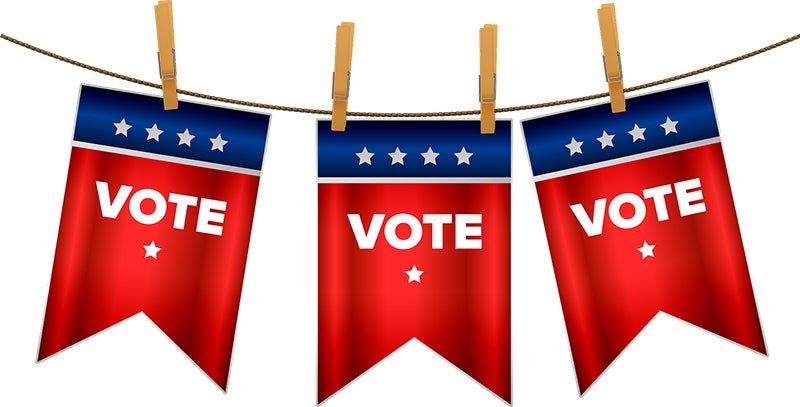Election 2020: University guidelines affect campaign activity, expression
With November’s general election approaching, the University of Colorado reminds employees of guidelines regarding political campaign-related activity and expression.
A variety of state and federal laws and regulations govern political expression, activity and conduct in the university workplace. Application of the law depends on the particular facts of the situation, and legal counsel should be consulted when questions arise. However, the following guidelines may be used when trying to determine whether particular conduct is appropriate in the university setting.
General principles:
- Employees have the right as private citizens to freedom of expression and participation in the political process.
- When expressing personal political views, university employees should be clear that they are not representing a university position and endeavor to maintain the principle of university impartiality in political campaigns.
- Private political activities must be conducted on personal time and without using university resources (computers, copiers, email addresses, promotional materials).
Employees should refrain from the following activities while at work:
- Sending or forwarding emails from university-hosted email accounts in support of or in opposition to candidates or ballot initiatives.
- Using university office supplies (including computers, copiers and fax machines) to create or disseminate campaign materials.
- Making calls on university phones in support of or opposition to a political candidate or ballot initiatives.
- Using university computers to make monetary contributions to political campaigns.
- Placing campaign materials in locations not designated for general signage.
In general, employees may engage in the following activities while at work:
- Discussing political issues and political campaigns with one another while on break.
- Wearing buttons or clothing promoting a particular candidate or issue, provided that the employee does not regularly interact with the public as part of their job duties.
- Placing a bumper sticker on a personal vehicle.
- Participating in campaign-related activities on personal time.
Because university email addresses are generally public and published on various websites, employees may receive electronic mail messages on their university-hosted email accounts from candidates and campaigns. Such emails are not illegal. The university cannot know or block every campaign- or candidate-related email account. Installing restrictive “spam” filters would have limited success with such messages, which originate from many different sources. It is important to remember, however, that the transmission of such emails to you does not constitute University of Colorado endorsement of any candidate or campaign. Employees should refrain from using university email accounts to forward candidate or campaign-related messages for the purpose of expressing opposition to or support for the relevant candidate or campaign issue.
University employees should always be aware that, as public employees, their activities may be subject to heightened scrutiny by the media and members of the public. Accordingly, they should take care to ensure that their private activities do not compromise their ability to carry out their official duties.


